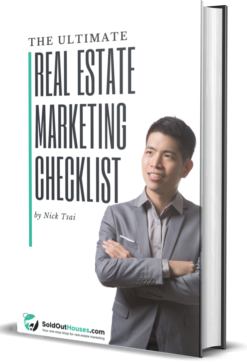Do your real estate prospects always seem to back out at the last minute? Does it seem like despite all the efforts you put in to get them to the point of making a decision, you just can’t seem to get them to cross that line and make the purchase?
This is simply because people don’t just spend their money without thinking it through. Your real estate prospects always have one or numerous questions, concerns, or objections in their minds, and they won’t make that purchase until they have received answers to them.
Failure to persuade them to make the desired decision or take the required action may cost you a lot of money in your real estate business. As a Realtor, you must have put in tons of effort and spent quite some money on marketing to get in front of those prospects, only to have them turn you down.
Thankfully, we have a solution. With objection-handling skills, you can easily diffuse any concerns that your real estate leads may have and close that sale without a fuss.
In this article, we will be highlighting in detail 5 easy steps to handle any real estate objections that would help you turn your real estate leads into clients. The last one will blow your mind.
1. Listen Attentively to Identify the Objection
How many times have you cut into the middle of your real estate lead’s speech?
One of the most important things to do when handling objections is to simply listen. This might sound ridiculously easy, but in reality, it’s not. Yet, it’s something you must do as a Realtor if you want to achieve success, and that is handling your prospects’ objections.
Why do you need to listen attentively? It’s the only way for you to fully understand what their concerns are. The less you listen, the less you know exactly what they want, and when you can’t figure that out, then you are already losing that prospect.
Granted. Listening to people go on and on about issues they don’t know anything about could be a tedious chore. You’re the professional. You know the terms, pros, and cons, but your real estate leads don’t. We understand that it may make you feel tempted to abruptly cut them short so you can share your professional expertise.
Don’t. Let them talk. Give them room to go on and express themselves, and you’ll find out exactly what their objections are.
How do you feel when you talk to that friend or doctor who allows you to speak your mind while listening attentively? Everyone loves to be heard. Your prospects do too.
It helps them trust you more and also makes them more open to the solution that you’ll have to give them later on. One secret tip is to write those things down in a book. It’ll also help you remember them.
2. Acknowledge their questions and empathize with them
Most clients start off thinking you’re only there because you want to make some money. They believe Realtors don’t want to help them because they don’t care about them. This creates a lack of trust and is detrimental to any real estate agent.
What should you do? Create that trust! One way to do it is to acknowledge the questions from your real estate lead and empathize with them.
By acknowledging or empathizing before asking clarifying questions to deal with the objection, you’ll connect and be able to reframe the negative situation.
To close deals, it’s important to acknowledge the concern. Hey, not by patronizing them or anything like that but with genuine acknowledgment. Here’s an example;
“Moses, I understand that taking out X amount of money could prove to be daunting for you at the moment. I’d have the same concerns if I were in the same position.”
Then, ask your question…
By first acknowledging the client’s objection and showing empathy, you’ll pave the way for your response to the sales objection, especially because you’ve made the prospect realize something crucial…
You’re not on opposing sides but on the same side, working together for the benefit of the prospect. It’ll keep the prospect at ease and allow you to proceed.
3. Encourage and Question to Clarify the Objection
How often have you stopped short of saying everything you have in mind because you think there’s no need for that?
That’s how most real estate leads think too. You have indeed listened carefully to them and let them talk, yet, most of them won’t say things exactly as they should. If you fail to find out what the real problem is, you’ll end up not getting the sale.
What should you do in those times? Get them to talk more about that objection so that you can get a full picture. The more the prospect talks, the more they’ll reveal their concerns and the more you can address them.
For example, if a real estate prospect tells you that you’re too expensive, you may have the urge to quickly step in and lay out all your benefits. You’ll be so wrong.
Instead, you could ask a clarifying question like, “Too expensive?” In answering that question, the client will go into details concerning that objection and give you a clearer picture.
You can also ask other open-ended questions too. The goal is to get them to explain what they have in mind. Here’s another thing you can do…
Lean into that objection and encourage your real estate lead by saying something like, “Tell me more. What’s your concern; the outright expense, or the longer-term impact of the cost?”
Allow the conversation to go on so that you have more information about whether and when the deal moves forward. Handling the concern this way builds your credibility and allows the prospect to know that you are truly interested in their point of view.
Once you’ve asked one clarifying question or two, restate the objection for clarity’s sake. For example:
“Mark, it sounds like the outright expense for this deal is something you feel you may not be able to afford at this time, especially since you’ve not been able to sell your property. Did I hear you correctly?”
This step suggests that you understand where the prospect is coming from, showing that you’re listening, which enhances your credibility. You’re also implicitly getting permission to move to the next step.
4. Isolate the Objection
Has someone ever told you the truth but not the whole truth?
Let me tell you a secret, and I hope you won’t tell someone else… Prospects lie, even your real estate leads.
Sometimes, they can talk about only one thing when they still have numerous concerns. Other times, they could simply feel you’re not right for them and then find something to use as an excuse to not move forward with you.
In any case, you have to do something about it, and one way to do that is by isolating the objection so you can be sure that it’s the only concern they have.
For example, if the prospect objects to the price, you need to know if the price is the concern, if the prospect doesn’t trust that the service is worth the price, or if it’s the only problem.
If there are other issues, for example, you’ll most likely handle the price objection, only to hear that there’s something else bothering the real estate lead. In handling objections, the goal is to get closer to closing the deal with each step.
You can say something like, “I understand that setting aside this amount of money could be a huge thing to do at the moment, but if you could get a home that perfectly fits the kind of environment where you’d love to raise your kids, would it be worth it?”
With this question, you’ll be getting the prospect to tell you if it’s about the money or the value that they expect. If it’s the money, you could go on with something like this…
“Apart from the cost of the housing, is there anything else that you’d love to talk to me about?” Or…
“If the money wasn’t the issue, is there anything else stopping you from moving forward?”
That way, you’ll be isolating the objection and making sure that there are no further objections except that one. If there are others, you’ll know how to handle them too.
5. Address the Concern(s)
Now that you’ve understood exactly what the concern is, you’ll have done all that for nothing if it’s not addressed, right?
Addressing the objections your real estate leads have are vital for you to close the deal. Indeed, the deal will never move forward without it, as no prospect will ever commit money when the concerns haven’t been addressed.
This is where your expertise comes in. It’s not enough to know the problems; you must have the answer to those issues. Pro tip? Start from the most important objection and address it till the very last. Once you work through the most pressing barrier to moving forward, other concerns may not matter so much to the buyer.
Ensure that you answer them in real-time, as fast and as complete as possible. The more you can do this effectively, the greater the chances of moving forward. The prospects must see why those concerns aren’t problems at all, and it’s on you to make them see that.
Once you’ve responded to all the prospect’s objections, verify that you’ve satisfied all of their concerns. They might have nodded during the conversation, but that doesn’t mean they agreed with all that you said.
Repeat the solution and ask if they’re happy with that. Explain further if need be.
Your solution must outweigh their concerns if they are to move forward. Hence, Realtors need to know how to justify their solution and help the prospect prioritize that solution against the others under consideration.
6. Conclude and Ask for the Sale
If you want to make a sale, you have one simple thing to do… Ask for that sale!
Yet, it’s not as easy as it seems, as many deals fall through at this stage, leaving the Realtor frustrated and disappointed in the end after so much effort.
When done wrong, the prospect might resort to the dreaded objection, “Let me think a little bit more about it,” While this objection can be handled too, the stress is something you may want to avoid. What should you do instead?
Let the prospect ask for the sale instead. This trick is key to closing deals so easily. Here’s an example…
“Since we have taken Objection A and B out of the way through this payment plan (Solution A), is there anything stopping us from moving forward?”
If you have addressed the objections well, the answer to that will be a “No,” and with that, the prospect will be the one proposing that you should move forward instead of trying to do it yourself.
The step also surfaces your prospects’ objections while reinforcing the progress you’ve made before moving to the next step.

I became a realtor when I was 25, Right now I’m a digital marketing expert helping realtors, brokers and real estate agents generate more leads online.















